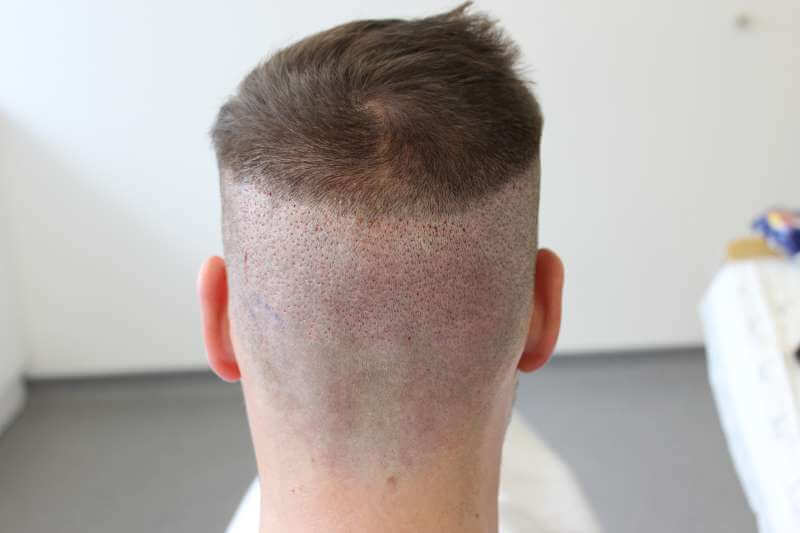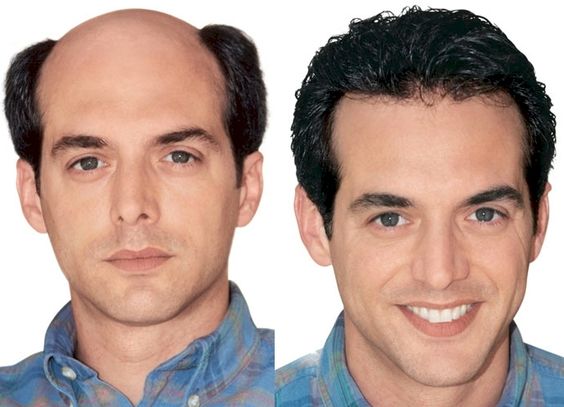Hair transplant surgeries have become very common in this modern era. A few years back, only a few people or celebrities would undergo hair transplant surgery; passing time has proved hair transplantation a boon for a big count of people facing hair loss/baldness.
Over time, India has become a major hub for cosmetic surgeries, hair restoration, and multiple other medical treatments. Because of the good quality results & affordable price range, hair restoration treatments have become famous in cities like Ludhiana, Bhopal, Lucknow, Dehradun, Jammu, Nagpur, Allahabad, Jaipur, etc.

FUE hair transplant is actually a minimally invasive technique due to its quick recovery time and excellent natural looking results.
STEPS IN FUE HAIR TRANSPLANT PROCEDURE:
PHOTOGRAPHS: When the patient visits the clinic for consultation, all the doubts of the patient are cleared by the surgeon and photographs of the head are taken from all the predefined angles, for post surgery and analyzing the results. These pictures are clicked by the team with a special camera and the collection is given to the patients with all the steps of treatment.
MARKING OF THE DONOR AND RECIPIENT AREAS: The hair transplant surgeons initially mark the donor and recipient regions so as to perform the procedures of extraction & implantation in a precise manner. After marking both the areas, the donor area is partially or fully shaved for improved visibility.
EXTRACTION FROM THE DONOR AREA: The donor area is the region from where the hairs are extracted after applying the local anesthesia. The hairs from the donor area do not have the propensity to fall as they don’t acquire the genetic code for baldness. Extraction is done by an instrument called “Punches”. The count of hair follicles that can be extracted in one day is about 2000 – 5000 follicular units. It also varies from patient to patient, based upon the individual characteristics of hair.
PREPARATION & STORAGE OF FOLLICULAR UNITS: Apparently after extraction, the hair follicles are stored in a specified solution, ensuring that they are strong and active. These units are hydrated in ideal room temperature until the procedure of implantation gets completed. The proper preparation and preservation of the follicular units are extremely important for achieving the successful results of hair transplant.
BREAK: The time taken to complete the hair transplant procedure might take around 6 to 8 hrs depending upon the number of grafts. As the patient is administered local anesthesia, a break is given between the extraction stage and the beginning of implantation. A light meal is given to the patient in the break averaging up to 30 minutes.
IMPLANTATION: During this phase, anesthesia is locally applied to the recipient area. The incisions are exactly the same as the length of the follicular unit; this is to avoid lesion of the blood vessels. These incisions ensure the right angle and direction of hair growth which are the same as that of natural hairs. The surgeon then carefully implants the follicles using Puncher, looking into the depth of hair extracted, the direction and inclination. The procedure may take around 6 to 8 hours or more than one sitting depending upon the number of grafts.
POST PROCEDURE: The transplanted hair falls in and around 3 to 4 weeks after the surgery. Once the shedding stops, the new hairs start to re-grow which are permanent. The patient can notice the natural hair growth results after 3 – 4 months. It takes around 8 to 10 months to get the complete growth of hairs with thick density. For the purpose of getting excellent outcomes, you should go through the pre & post surgery instructions in advance.






